A centralised combined utility that supports heating, electricity and air conditioning could help to make energy consumption much more efficient and sustainable. The home will be entirely connected, including all kitchen, bathroom and electrical appliances and heating devices. This could allow for a consolidation of energy consumption data which in turn will improve energy efficiency.
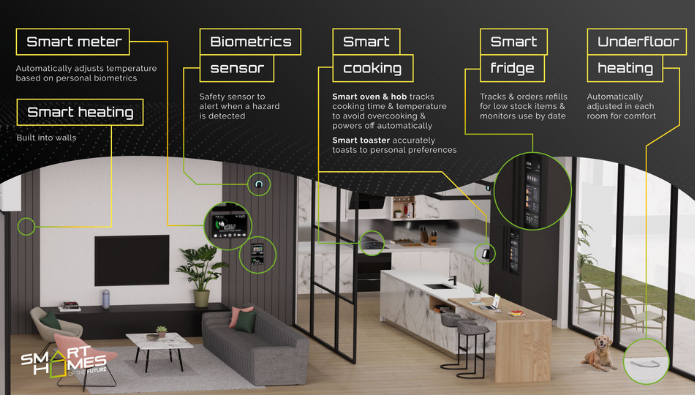
Smart meters will incorporate data from sensor technology embedded in clothing, accessories and furniture. The meters will dynamically adjust based on your personal biometrics, meaning that each room in your home will always be at the optimum temperature to suit your comfort levels, whether that’s staying cool whilst working out in your living room or keeping warm at bedtime.
Instead of traditional radiators and towel rails taking up space, heating could be embedded within the structure of your house, including the walls, floors and around the window to ensure efficiency.
Full automation of all electrical appliances
From kitchens to entertainment, all electrical devices could automatically power down when not in use and when electricity is most expensive. Solar panels could be replaced by roof tiles with solar technology embedded in order to effectively capture and store energy to power the home.
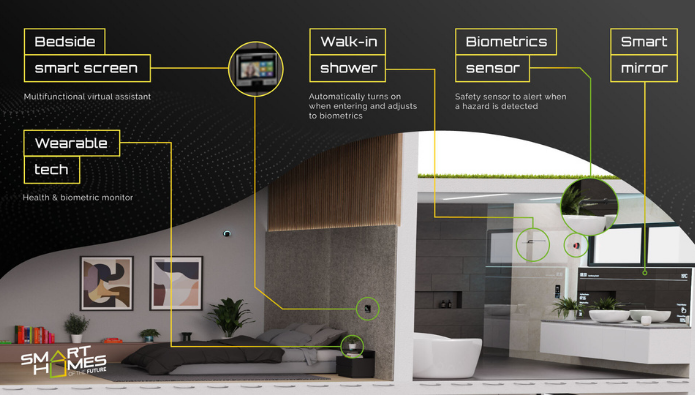
In the kitchen, you won’t need to worry if cooking isn’t your strong point, smart kitchen appliances could do all the hard work for you. From ovens and hobs that track ingredients and cooking temperatures to ensure that you never over or under cook a meal, to a fridge that automatically restocks and alerts you to out-of-date food, your kitchen could take all the hassle out of preparing meals.
Bathrooms could include smart showers that automatically turn on as you enter and mirrors that instantly capture and display relevant information about an individual’s current health state.
Homes could be equipped with panic rooms
Homes could be built with a basement panic room for added security and peace of mind in case of an emergency.
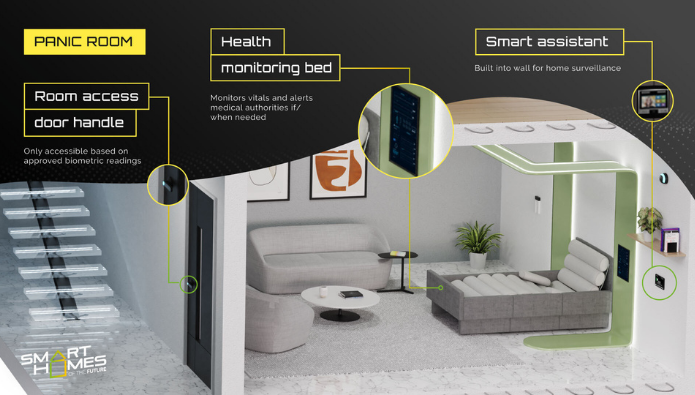
Panic rooms could include reinforced windows and doors, a smart assistant built into the wall for home surveillance and a health monitoring bed that observes health vitals and alerts medical authorities when needed.
For security purposes, the room could only be accessible based on approved biometric readings for individuals living in the house.
Homes will be more secure than ever before
Forget double locking your home and leaving your curtains closed when you leave the house, by 2071 homes will reach optimum levels of security and safety features.
Each room of the home could be fitted with biometric sensors that detect all movement and recognise when individuals walk into a room, with entry to certain rooms only granted based on approved readings. You could be automatically alerted of any potential hazards, such as a young child entering a room alone, leaking pipes or solar panels not charging.
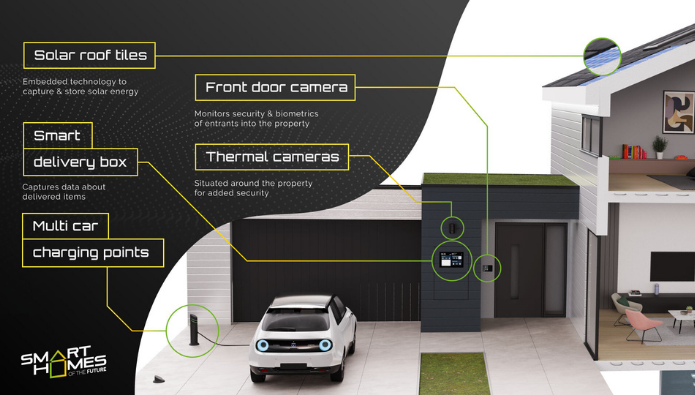
In addition, every person that enters your home could have their biometrics scanned and security checks could automatically be carried out to capture relevant data.
Thermal cameras could surround the property and entrances to the home could include video displays so you can monitor activity remotely. Each home could also be equipped with a smart delivery box that will capture and store the data of all packages received.
Although 50 years may seem a long way off right now, there are smart devices and technologies available in 2021 that can help us to lead a more efficient and eco-friendly life.
For more information on the smart home tech you should be investing in, you can view Rointe's useful guide here.
*Cecilia Harvey is the founder of Tech Woman Today.



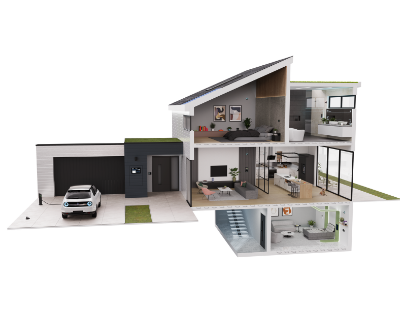





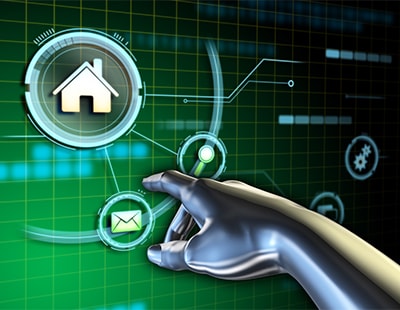
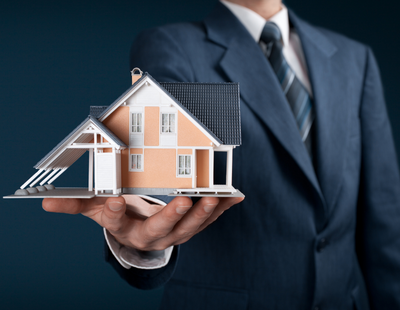


.png)










Join the conversation
Jump to latest comment and add your reply
Interesting concepts regarding a futuristic home & many people - lazy or those with a busy lifestyle would love the idea & can afford the costs.
However despite Biometric security, I wouldn’t want a 100% automatically run homes.
Biometrics is potentially one of the cyber safe tech at present, still it can be bypassed, allowing access to intruders. Anyone with the criminal intent will probably block the access/exit points of panic room, & main doors first.
Solar panels life expectancy is 25-30 years, it’s recycling & decomposition is difficult. Hence by using them across a person’s quarter lifetime (using 100 years human lifespan for ease of calculations), these homes will create another non recyclable waste hazard to deal with in their old age, as well as environmental issues for the next generations with unusable, non-decomposed solar panels-No thanks I don’t want solar panels.
Walk in showers, bedside tech, smart mirrors, smart tech, biometrics, underfloor heating etc--all of these have high repair/replacement costs, and will inevitably result in personal data from pre-conception till post death in a third party’s tech data depository/cloud/future servers, which defeats the objectives of GDPR laws when the home owners/residents won’t be able to pinpoint the source of personal data leaks.
Would I want myself, my family and worst of all making a third party (except clinical professionals) be aware of my intimate moments, or put my babies, kids, elderly at risk by a third party tracking them 24/7 inside my home-it’s an absolutely No No.
Traditional bricks and mortar, no biometrics, no third party tech providing automation in my home to suddenly decide to take over the safety & security of my loved ones, as well as creating more hazardous ☢️ non decomposable waste on our beautiful planet 🌎 creating hazards for my future generations.
These tech homes are not 100% Green, and are absolutely hazardous for future generations.
Clearly the sellers, today’s scientists and politicians would sell it as beneficial as a
Green tech, without sufficient research & knowledge of impact on the future.
My opinion based on having used some of these Tech - Absolutely don’t fall for these gimmicks unless you have more money than sense, are in tech sales, a politician, and/or happy to leave another waste legacy for next generations to contend with the dangerous toxic gases.
Each to their own opinions, experiences, decisions. Best wishes to all.
Please login to comment